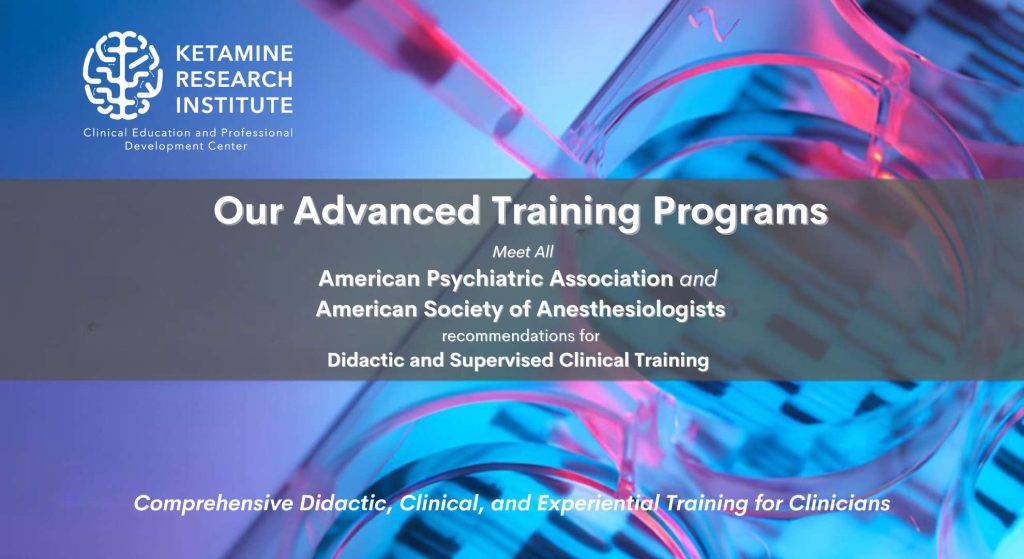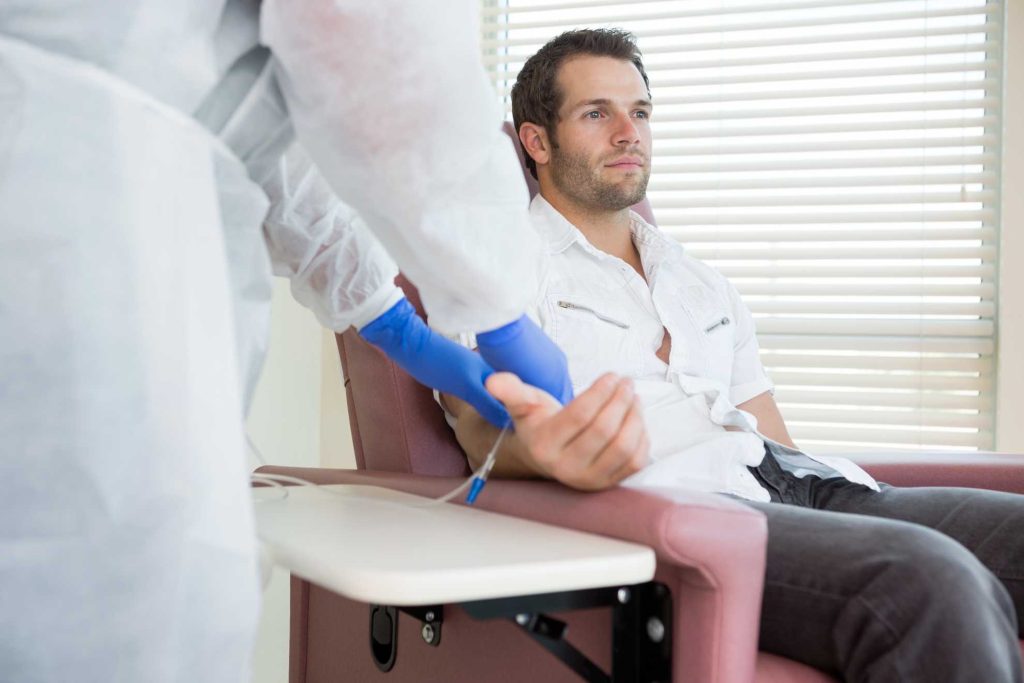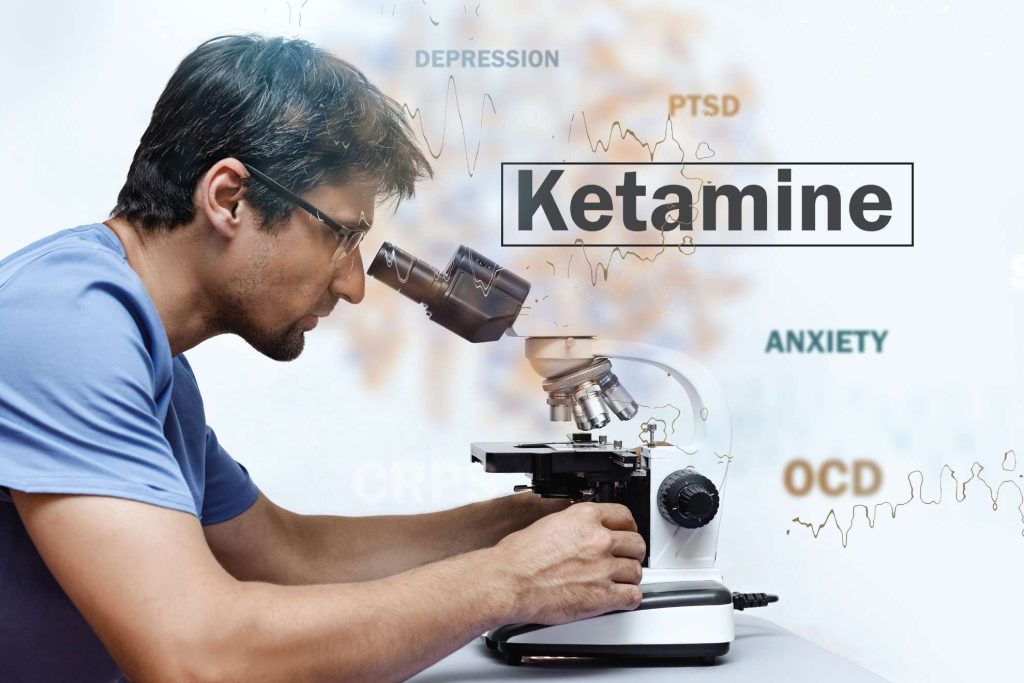 How To Choose The Best Ketamine Infusion Center - 2023
How To Choose The Best Ketamine Infusion Center - 2023
Depression, anxiety, post-traumatic stress disorder (PTSD), and other psychological problems significantly impact self-confidence, interpersonal relationships, and career. Ketamine infusions have revolutionized the treatment of mood disorders by offering fast and efficient relief. Ketamine clinics are opening up all over the country to help patients with ketamine therapy.
The Idea of Ketamine Therapy is New to Most People
For most patients, ketamine infusion therapy is a relatively recent innovation, so it's critical to locate a ketamine infusion center that is both competent and experienced in administering the treatment. It is also important not to choose a clinic simply because it is the nearest one or appears high in the Google or Yelp listings. While most ketamine clinics have the best intentions, provide excellent service, and genuinely want to be helpful, some may not.
What to look for in a ketamine clinic
Unfortunately, a growing number of venture capitalists, franchisers, and unscrupulous providers see this remarkable new therapy as an opportunity to make money while marketing themselves as the next "McDonald's" in ketamine clinics. It's critical to keep in mind that you'll want a committed and dedicated healthcare provider focused on your best interests. It is wise to avoid "ketamine-as-a-business" promoters when it comes to serious illnesses like treatment-resistant depression, anxiety, or post-traumatic stress disorder.
It would be best to consider several things before choosing the best center for your needs. Below are five critical factors to consider while searching for the best ketamine infusion clinic for you. Remember that not all ketamine clinics or treatments are created equal, so it's essential to understand what to look for and carefully consider your options before deciding to undergo ketamine therapy.
5 Critical Factors in Choosing the Best Ketamine Clinic
Let's explore each of these critical factors more closely.

1. Look for Expertise and Experience in Administering Ketamine
One of the essential things to search for in the best ketamine clinic is ketamine infusion therapy offered by physicians with the most expertise and experience.
Ensure that the center you choose has the depth of expertise and experience necessary for administering ketamine infusions safely and effectively. The medical staff must have all of the appropriate qualifications, the necessary infusion experience, and the required monitoring equipment necessary to offer ketamine therapy safely, efficiently, and comfortably. Some ketamine providers may not have had the classroom and supervised clinical training recommended by the American Psychiatric Association and the American Society of Anesthesiology, or the clinic may not follow the strict patient selection criteria and treatment regimens that research centers do, so your results may vary — significantly.
Ketamine infusions are not conducted like any other medical treatment, meaning you will want ketamine therapy administered by qualified experts who know how to care for you and what they're doing.
Expertise: Are they knowledgeable about ketamine?
Although many physicians and ketamine infusion centers now provide ketamine, they can vary widely in their training, knowledge, and experience. It is not unheard of that some ketamine therapy providers may have only read one or two papers published on the subject and then concluded that they are qualified to start administering infusions. Some ketamine providers may not have had the didactic and supervised clinical training recommended by the American Psychiatric Association and American Society of Anesthesiology, or the clinic may not follow the strict patient selection criteria and treatment regimens that research centers do, so your results may vary — significantly.
How to know who is an expert
It can be challenging to determine if the ketamine provider is an expert in the field. Some ketamine providers may be members of various professional ketamine societies, but that does not always mean or guarantee that they are experts qualified to administer ketamine. Many ketamine practitioners and clinics will claim to have helped hundreds of infusions to their patients over time... but who has really given those infusion sessions? Often, the clinicians who provide ketamine therapy may only "supervise" or "oversee" the treatments you receive — they do not actually "perform" the infusion themselves or follow your progress closely.
An excellent way to determine if someone is knowledgeable about ketamine treatments is to ask if the physician or practitioner providing treatment has published many research papers on the subject or has given presentations about ketamine infusion therapy at national meetings and conferences. If they have, that is an indication they have ketamine expertise.
Experience: To be good at anything, you need lots of experience
Although ketamine infusion centers are still relatively new, a few ketamine centers have been open for years. The clinic you choose needs to have a substantial track record of performing many ketamine infusions and a history of ketamine success stories from those who received ketamine infusions.
How long have they been open?
When you call the ketamine infusion centers, ask how long they have been open. If it has only been operating for a few months or years, this may not be an ideal ketamine clinic because ketamine doctors may still be learning ketamine treatment protocols.
To ensure that a ketamine center has enough experience, look for a ketamine clinic that has been in service for at least three to five years and has performed at least 2500 ketamine treatments. These criteria suggest ketamine infusion centers have enough time and hands-on experience to refine their ketamine treatment program.
2. Ask how you will be evaluated as a candidate for ketamine therapy.
While ketamine treatments may be quite successful, it is not appropriate for everyone. The best clinics want to ensure that you have the most significant opportunity to benefit from ketamine treatment.
Before any high-quality center offers this sort of therapy, they will thoroughly examine each patient by looking at medical records, ordering laboratory tests, and administering tests to determine the impact and severity of your condition before your treatment begins. Reputable ketamine clinics will not use call-in centers, high-pressure sales tactics, or offer same-day appointments. These are red flags to be careful of when considering a ketamine clinic.
Evaluation is critical
The best ketamine clinics will conduct a thorough pre-treatment evaluation. Ask if the ketamine center performs a comprehensive psychologic, physical, and metabolic assessment to determine ketamine treatment suitability before undergoing ketamine therapy. Clinics that offer same-day appointments are a giant red flag.
One of the first things they should ask for is your prior medical treatment records from your current physician, psychiatrist, and therapist. This vital information provides a better context for evaluating what other treatments may have been helpful in the past and whether or not you may benefit from ketamine treatments. In addition, it helps to foster ongoing communication and collaboration with your other providers to assess and monitor your progress.
Although numerous research studies conducted over the past 20 years have shown that ketamine infusions can be effective for 70% - 75% of "research subjects" who have not responded to any other treatments or antidepressant medications — it is essential to understand that "research subjects" are not the same as "real-world" people — and it may surprise you to learn that "real people" often do not respond to ketamine infusion nearly as well as those in research studies.
How do they determine if ketamine is right for you?
It is essential to determine the impact depression, anxiety, PTSD, or other mental health issues have on your life before ketamine therapy. Evaluating ketamine suitability also includes looking at your overall health and medication usage. The ketamine clinic should use validated metrics to determine the quality of life, such as the Beck Depression Index or Hamilton Rating Scale, to understand your circumstances better.
Physical Conditions may suggest that ketamine is not safe for you
Your overall physical health is another critical factor before starting ketamine therapy. For example, people with uncontrolled high blood pressure, angina, or a history of stroke are not good candidates for ketamine treatments. Poor candidates are at an increased risk of ketamine treatment-related adverse effects.
Medications you are taking can interfere with ketamine therapy.
Mediations you take daily can sometimes interfere with ketamine therapy, and the ketamine center you choose must understand these issues. If you take prescription medications such as benzodiazepines (Xanax, Valium, Klonopin), amphetamine derivates like Vyvanse or Adderall, or specific mood stabilizers including Lamictal or Zyprexa, then you may not have good results with ketamine.
Metabolic, hormonal, and genetic factors play a prominent role in the outcome.
Not everyone responds the same way to medication, and some patients may have underlying metabolic or genetic issues that will affect how well they react to ketamine infusion therapy. If you have a metabolic deficiency, such as low carnitine, testosterone, or thyroxine levels, you may not respond optimally to ketamine. Some patients may have a genetic variation of critical enzymes such as MTHFR (methylenetetrahydrofolate reductase) or BDNF (brain-derived neurotrophic factor), which can reduce the effectiveness of ketamine. The best ketamine clinics know these critical issues and will discuss them with you before performing infusion therapy.

3. Does the clinic follow guidelines for ketamine treatment published by the APA and the ASA?
When ketamine infusions are performed under controlled circumstances and precisely, the success rate for ketamine therapy is remarkably high. However, some clinics have been accused of being "ketamine mills," which may be due to their lax standards. Avoid any ketamine clinic that sees many people each day, prescribes ketamine take-home, or does not follow ketamine guidelines.
Reputable ketamine physicians and clinics understand that the treatment should be conducted following American Psychiatric Association (APA) guidelines and American Society of Anesthesiologists (ASA) standards and in a safe and well-equipped medical facility.
If the ketamine treatment is performed in a hospital or medical center environment, it will likely be administered and monitored by professionals with enough knowledge and experience to provide the best results and ensure your safety.
Standards and Guidelines
Be sure that the ketamine clinic you choose follows the guidelines and professional statements published by the American Psychiatric Association and the American Society of Anesthesiologists that outline in detail the essential precautions necessary to ensure the appropriate use and safety of ketamine infusions. The guidelines detail precise requirements for each center performing ketamine infusion therapy, but a basic summary of the crucial elements is provided below.
Patient Selection:
The first step in ketamine treatment is to choose the most suitable patients. The criteria recommend that patients with treatment-resistant depression, anxiety, or post-traumatic stress disorder are appropriate candidates for ketamine. Ketamine physicians should exclude patients if there are any circumstances that would substantially influence the benefit-risk balance of ketamine therapy, such as a mental health history of psychosis or schizophrenia.
Monitoring:
A physical examination and vital sign monitoring should be performed at the start of ketamine infusion treatments and during posttreatment monitoring. Clinics should have cardiac and respiratory monitoring and dissociation and psychotomimetic effects evaluation. Anxiety, cognitive function, happiness, and psychosocial functioning should also be monitored.
Post-Infusion Assessment:
Immediately after ketamine infusion treatments, patients should be evaluated for cardiac and respiratory function and the return of their waking consciousness. Patients should make careful plans for transportation, and ketamine patients should not drive or use dangerous equipment without at least one night of rest.
The best ketamine infusion centers will meet or exceed all these requirements, and you should be very suspicious of any facility taking shortcuts or suggesting it is unnecessary.

4. How effective are their treatments, and how many patients have they treated?
Although ketamine treatments have a very high success rate, there are no guarantees that ketamine therapy will work for you or your loved one. Patients should be cautious of any ketamine clinic that claims to offer cures. Reputable clinics will be honest with prospective patients about the potential for success and failure, mainly when dealing with those struggling with treatment-resistant mental health problems.
Look for facilities that take the time to answer all of your questions and seem genuinely knowledgeable about ketamine. Perhaps they have undergone ketamine infusion treatments themselves and can share their experiences with you.
How effective is ketamine, and what can you reasonably expect from treatment?
So, what is the minimum level of improvement you can expect if you have this treatment? Over the years, numerous studies have been done utilizing the regular ketamine infusion (also known as the standard ketamine protocol) as developed at the Yale University School of Medicine in 1994. But what is the "standard" ketamine protocol?
What is the Standard or Regular Ketamine Protocol?
The regular ketamine infusion consists of administering 0.5 mg of ketamine per kilogram of the patient's body weight over 40 minutes. For example, if you weighed 185 lbs, you would be given approximately 42 milligrams of ketamine in an IV bag that slowly infuses the medicine over 40 minutes.
Typical Results for the Standard Ketamine Infusion
Following that protocol, in ideal cases and research settings, you could realistically expect that after six ketamine infusion sessions over two weeks, 70%-75% of patients undergoing ketamine therapy will experience at least a 50% reduction in symptoms. That sounds great, but it is important to understand that "research subjects" are not the same as "real-world" people — and it may surprise you to learn that "real people" often do not respond to ketamine infusion nearly as well as those in research studies.
Some believe a more realistic number would be only 40-50% of people respond to regular ketamine infusions when it is given in an outpatient ketamine clinic or center. According to one recent report, just 45.5% of patients with treatment-resistant depression responded favorably after six infusion sessions in a prestigious community hospital. The results can be so variable that in a study published in 2020, conducted at the world-renowned Massachusetts General Hospital/Harvard University Department of Psychiatry in Boston, only 15 of 82 (18.3%) of their patients improved after enrolling to have six "standard" ketamine infusions!
How Many Infusions Are Necessary?
After the initial six ketamine infusions, it is often necessary to have infusion "boosters" every 4-6 weeks are customary to maintain those benefits. Some centers with more experience and sophisticated approaches to ketamine therapy have even better outcomes.
How many patients have they treated?
It's a self-evident truth that makes sense to just about anyone who hears it: If you have a procedure or treatment done, you want to go to someone with a lot of experience doing that procedure or treatment. Ketamine clinics, like hospitals, have a responsibility to their patients to be sure that the services provided by their staff are of the highest quality and safety.
Ketamine infusion therapy is a medical procedure, and as such, it is subject to the same regulations and guidelines as any other medical service. Ketamine physicians who provide this treatment must have the level of experience in intravenous ketamine therapy as they would for any other medical procedure.
How many ketamine infusions are enough to ensure competence?
It is well known that ketamine treatment centers and physicians who focus primarily on ketamine therapy often have the best results. As a result, those looking for ketamine therapies should seek out a ketamine clinic that specializes in this area rather than offering it as just one of many different treatments they provide.
A ketamine clinic that offers many other therapies and services may not have the highest volume of ketamine patients since they only perform ketamine infusions occasionally. While there are no formal criteria for intravenous ketamine therapy competency, we anticipate that competent treatment centers will have completed more than 500 infusions, with the best facilities undoubtedly doing much more.
Don't forget that the average person will have six infusions over two weeks, followed by a maintenance infusion once a month. This means that if a ketamine clinic has only done 500 infusions in one year, they have likely only seen and treated about 45 patients during that time.
How long have they been doing ketamine procedures?
It seems as if new ketamine clinics are popping up every day. If a ketamine clinic has been open for less than 2-3 years, they may not have the level of experience and expertise that you need. Those centers that focus primarily on intravenous ketamine therapy and have been around for five years or more are usually still in business for a good reason.
Be aware, too, that some ketamine centers outsource ketamine infusion services. Their physicians are not performing ketamine infusions themselves but instead send ketamine patients through to ketamine clinics and ketamine infusion centers that operate under their name.
If physicians are not treating ketamine patients themselves, they cannot be considered competent to perform ketamine infusions unless they have years of experience with ketamine infusions at an outsourced ketamine clinic.

5. Is the environment in which you will be treated appropriately?
We've experienced firsthand what it's like to have a ketamine infusion, so we know better than most that it needs to be administered in a quiet, comfortable, and safe atmosphere. An appropriate facility for administering intravenous ketamine might be a hospital, medical center, or medical clinic, for example. Avoid going to ketamine infusion clinics in strip malls, remote residential, or industrial areas.
Ketamine therapy is unlike a routine visit to your primary care doctor's office.
Unfortunately, some ketamine physicians or ketamine clinics may see ketamine infusion therapy as a simple office procedure that requires little or no direct involvement and can produce some additional revenue for their practice. The clinics may be owned or operated by businessmen or physicians who only "supervise" the treatments you receive.
Often the practitioner will only meet with you for a few minutes before the treatment begins, and their assistants administer your actual infusion. Although the staff may be well-meaning, often, they do not have a great deal of experience with intravenous ketamine administration and may not be at your side during the entire session.
In our view, and in the opinion of the American Psychiatric Association, this is not a safe practice. Let's not forget that ketamine is a potent medication, and it is an anesthetic drug. When you choose to have this treatment at a ketamine clinic for yourself or a loved one, be very cautious if the doctor is only with you for 5 minutes before the infusion and a thoroughly trained and experienced member of the healthcare team is not with you "at all times" during your infusion.
Does the staff appear helpful and relaxed? Is the office quiet and peaceful?
Set and Setting Matter
Set and setting refer to the physical environment in which the ketamine infusion takes place (the setting) and helping a patient to feel safe, secure, and comfortable as well as have the proper frame of mind before the treatment is referred to as the set - (or mindset) before beginning the infusion process. Both of these issues are essential when it comes to ketamine therapy.
Ask yourself if the ambiance "feels right." Do the employees and medical staff appear calm and pleasant, or are they rushing around frantic with too many patients and other issues? Did the practitioner who will give you the infusion sit with you and your family for at least 30 minutes, answering all of your questions and making you feel at ease?
If the answer is yes, then you have found an appropriate facility. The best clinics will take all the time necessary to answer your concerns, feel relaxed, and have the proper mindset before an infusion which is crucial and can go a long way to have the best experience.
_________________________________________
KETAMINE CLINIC WARNING SIGNS
Undertaking any form of new therapy or treatment for a severe medical condition can be a concern for you and your family. So, before you consider ketamine treatment with anyone, find an experienced and trained physician, ask many questions, and be satisfied with the answers.
Remember, the closest ketamine clinic may not be the best choice. The center you choose needs to have a history of ketamine infusions and a history of ketamine success stories from those who received ketamine infusions from the ketamine clinic. If the clinic has only been open for a few months or a year, they may not have the experience and expertise you require.
Trust Your Instincts
When assessing a possible clinic, trust your instincts: trust your gut and what feels natural. It is best to avoid centers that use remotely located calling centers and try to schedule appointments over the phone before you are evaluated. Be suspicious if they employ some pretty aggressive sales techniques when getting you to schedule an appointment. Also, be concerned if they offer special "infusion package deals" or "membership deals" to use their services.
Watch Out for the New "Ketamine Business Model"
Be wary of some of the "ketamine-as-a-business" promoters who have numerous clinics, and offer you ketamine tablets, lozenges, or even IV kits to perform your infusion at home or over the internet with a zoom meeting. Another potential red flag to be avoided is any ketamine clinic that uses post-infusion ketamine nasal sprays or prescribes ketamine tablets or lozenges to make their infusion treatments last a little longer.
In our experience, these medications often do not work well and rapidly increase your body's tolerance the ketamine. When that happens, you may find that you can no longer benefit from infusions and your symptoms begin to return.
Ask for Help
If we can be of any help, please feel free to call the Ketamine Research Institute at 800-850-6979, and we will assist you in any way we can. Our Frequently Asked Questions (FAQ) page on our website or the Not All Ketamine Infusions Are The Same page is a helpful resource.
____________________________________
RESTORE is the new "Gold Standard" in ketamine-based therapy
The RESTORE infusion program is an advanced program that unlocks the full benefit of ketamine. It is the most rapidly acting, effective, and longest-lasting ketamine-based infusion available today.
If you want to learn more about the RESTORE program, please visit our website and clinical research center (ketamineinstitute.com). We can also assist you with a free private consultation; please call us at 800-850-6979; we want to help.
We don't treat patients; we treat people - one person at a time.

 How To Choose The Best Ketamine Infusion Center - 2023
How To Choose The Best Ketamine Infusion Center - 2023